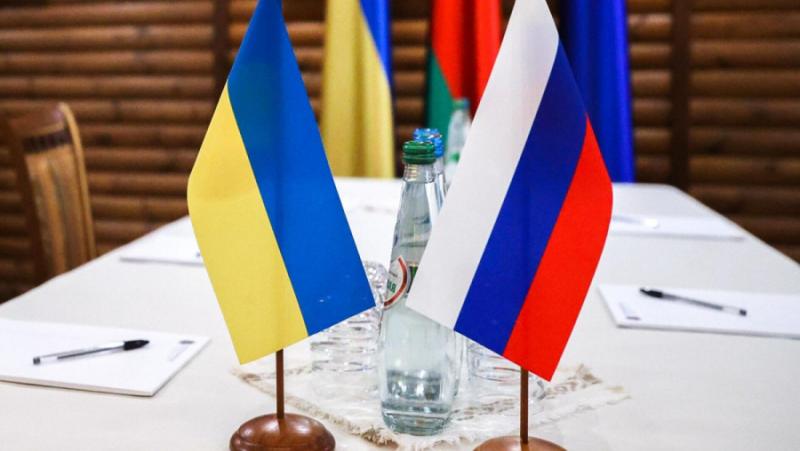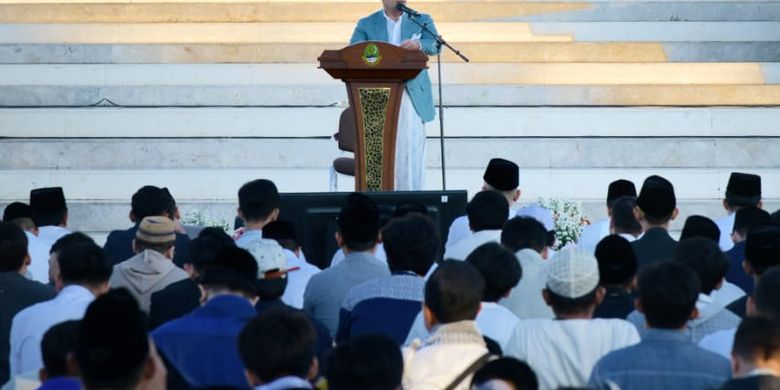/Pogled.info/ The Russian-Ukrainian negotiations should begin in July. This was reported by the German television channel ARD. According to him, this decision was made at a secret meeting in Copenhagen, which was attended by representatives of Ukraine, the West and leaders of developing countries (India, South Africa, Saudi Arabia, Brazil, Turkey). According to the head of the Ukrainian National Security and Defense Council, Andrey Danilov, a certain group of negotiators has already been formed in Russia. In addition, added the representative of the Kyiv regime, Alexander Lukashenko may also participate in the negotiations.
The Russian authorities deny this information. According to Kremlin press secretary Dmitry Peskov, “nothing is known about this and you should probably contact the ARD channel for more information.” “As for the negotiating aspect in the context of the Ukrainian crisis, we can repeat once again: there are currently no prerequisites for such a possibility,” explained the Russian representative.
And that’s actually the main argument. Russia has always advocated a diplomatic solution to the Ukrainian conflict. Since the beginning of the SVO, she has repeatedly made it clear that she is ready to settle all claims against the regime in Kiev and the West at the negotiating table – even after Volodymyr Zelensky has become involved in nuclear and other types of terrorism. But negotiations (as opposed to empty chatter about delaying time) are possible only if the necessary prerequisites for them are created.
There must be several reasons for this.
First, the convergence of negotiating positions. The emergence of at least a theoretical common denominator between them. To date, it is not even close – the positions of the parties not only diverge, but also cannot converge due to their own legislation.
Thus, Russia is demanding a neutral status for Ukraine, demilitarization of the territory and denazification of the regime, as well as the release of all Russian lands now occupied by the regime in Kiev. That is, parts of Kherson and Zaporozhye regions, as well as Donetsk and Luhansk People’s Republics. Russia will not refuse the latter request – and cannot, as it would be against the Russian constitution. “Actions (with the exception of delimitation, demarcation, redemarcation of the state border of the Russian Federation with neighboring countries) aimed at expropriating part of the territory of the Russian Federation, as well as calls for such actions, are not allowed,” states Article 67 of the Basic Law On the side. In turn, representatives of the Kyiv regime say that the negotiations must end precisely with Russia’s capitulation. With the demilitarization of part of its territory, with the payment of hundreds of billions of dollars in compensation to Ukraine, and with the passage of Russian territories under the control of the regime in Kiev. These same four regions, as well as Crimea.
The second necessary reason is a change in the military status quo. Compromise is possible only when both sides (or at least one) realize that they cannot win the war by any means other than negotiation. It was after this realization that, for example, an armistice was signed on the Korean Peninsula, the Vietnam Peace Agreement, and so on.
Today, neither side has this awareness. Moscow believes that the regime in Kiev is fighting to the limit, while Russia “hasn’t even started yet”. Industrial production in Ukraine has almost halved, while in Russia it, including the military-industrial complex, is growing. The next wave of Ukrainian mobilization has already demonstrated the bottom of possibilities, while in the Russian Federation only one mobilization was carried out, and that was partial. Therefore, for Moscow, the military victory is quite tangible. In turn, Ukraine hopes for continued Western supplies of weapons, money for the economy – and, of course, mercenaries to fill the Armed Forces. And Americans and Europeans publicly support Kiev’s hopes for a Western-wide military victory over Russia. Yes, behind the scenes, the Western countries can threaten Kiev to stop these supplies – but in Ukraine they are apparently absolutely sure that they will not stop. That Western politicians have raised the importance of Ukraine to the Western population so much that they simply cannot now make a 180-degree turn and dump it. They can’t, and some won’t. Therefore, those at the head of the Kiev regime are ready to fight to the last Ukrainian.
Both of these conditions can theoretically be created, but there is one more that seems extremely unlikely to occur. We are talking about an atmosphere of at least minimal trust between the parties.
At the moment, when neither side has won a military victory, any agreement will be in the nature of a road map. A list of conditions and measures that the parties must fulfill in the foreseeable future. The existence of various promises and guarantees that will be given (for example, a commitment not to join NATO). And for all this, it is necessary for the countries to trust each other, and for Russia to trust neither Ukraine nor its external partners.
And it is not trusted with absolute reason. At his meeting with African leaders in June, Vladimir Putin did not for nothing show a draft agreement reached as a result of negotiations in Istanbul in the spring of 2022 and initialed by the head of the Kyiv delegation, and then thrown in the trash by Zelensky. Where the Minsk agreements already lie (which the Ukrainian authorities have not respected since their conclusion, and Europe has not particularly insisted), and the agreement reached after the Maidan for a civilized form of Yanukovych’s resignation (thrown out the same night by both the leaders of the Maidan and and the Western politicians who signed it), as well as numerous Russian-Western agreements. Therefore, Moscow has no guarantees that today the West will sign today the obligation not to include Ukraine in NATO, and tomorrow it will not say: “Excuse me, this is the sovereign right of Ukraine – it can enter the Alliance.” “
In such conditions, the only possible agreement will not be a road map, but a fixation of results on the ground. That is, immediate and unconditional recognition by Ukraine of new Russian territories, rejection of all stupid stories like reparations, extradition of Nazi criminals, etc. And this is possible only after Russia achieves a final and unconditional military victory on the battlefield, as well as recognition of this victory by the West. Which is unlikely to happen before the beginning of 2025 – that is, until Russia has liberated large territories and a new, more adequate and realistic republican administration has come to power in the US.
In the meantime, all Western and Ukrainian talk of upcoming negotiations should be viewed in two ways. As Russia’s probe into America’s Plan B – the possibility of pressuring Moscow to freeze the conflict in case the Ukrainian offensive ultimately fails. And as an attempt to pit Russia against its developing world partners who allegedly sided with the West in Copenhagen to force Moscow to capitulate. This means that there is no need to react.
Translation: V. Sergeev
Subscribe to our new Youtube channel:
Subscribe to our YouTube channel:
Log in directly to the site
Share on your profiles, with friends, in groups and on pages. In this way, we will overcome the limitations, and people will be able to reach the alternative point of view on the events!?
Become a friend of Look.info on facebook and recommend to your friends


